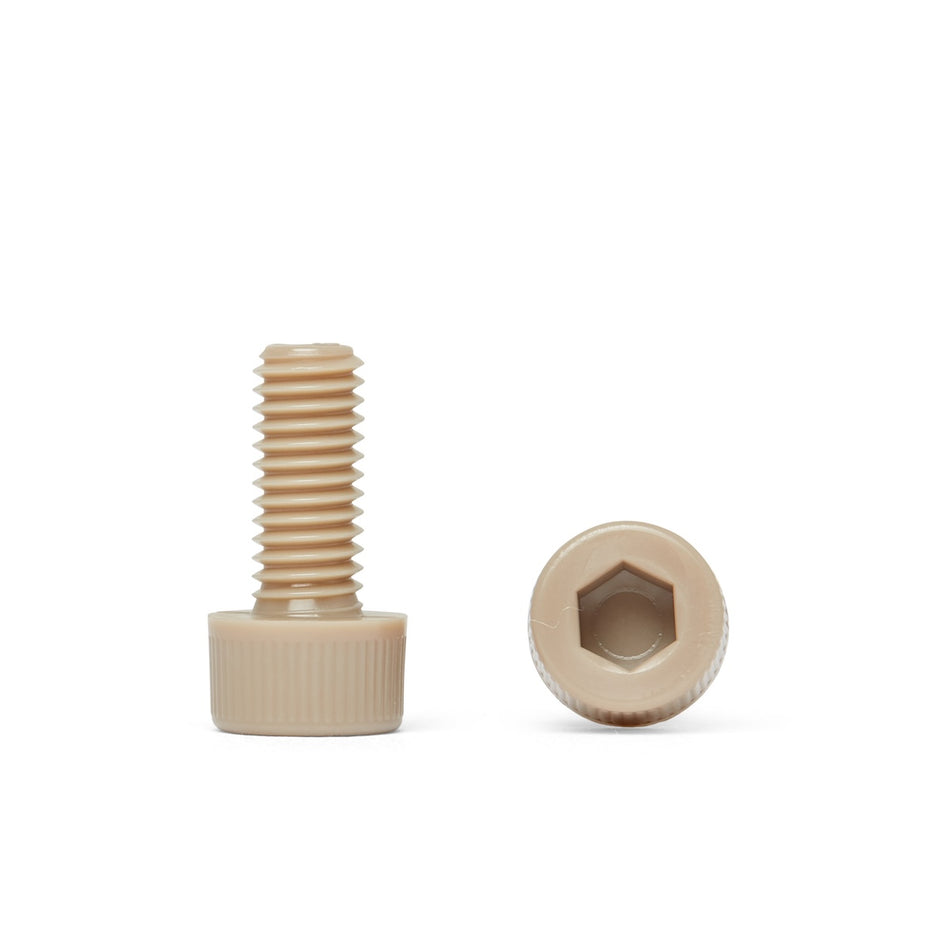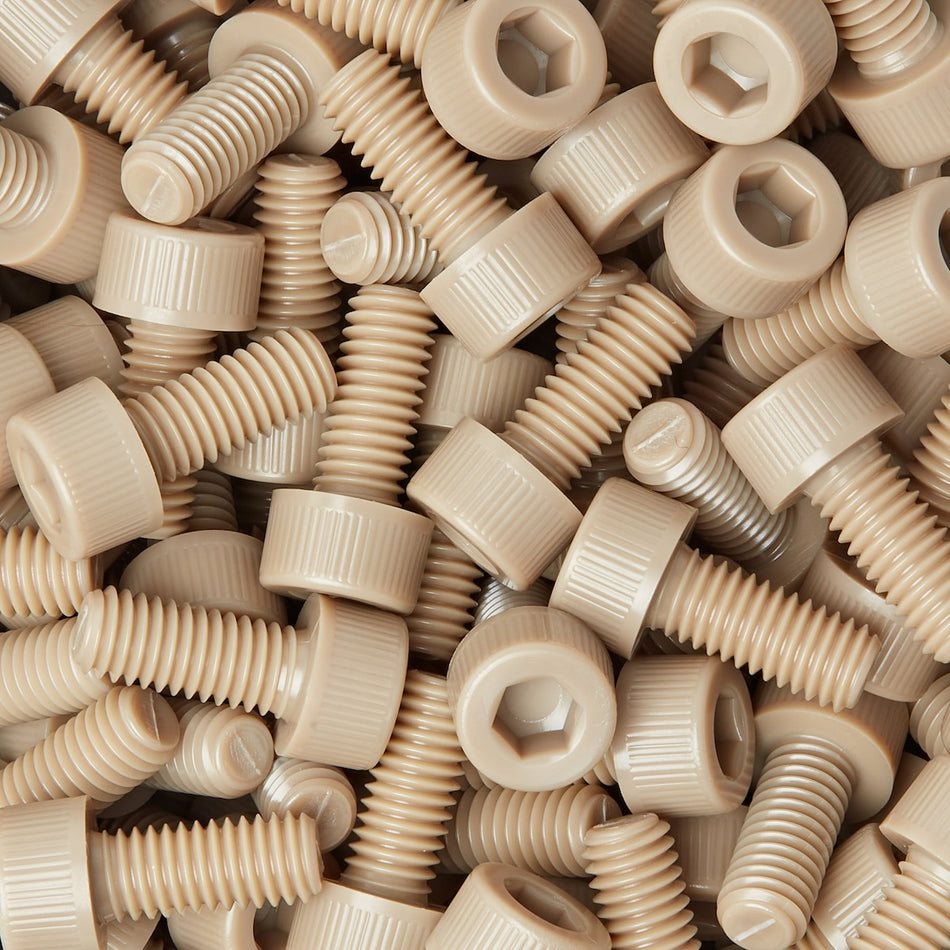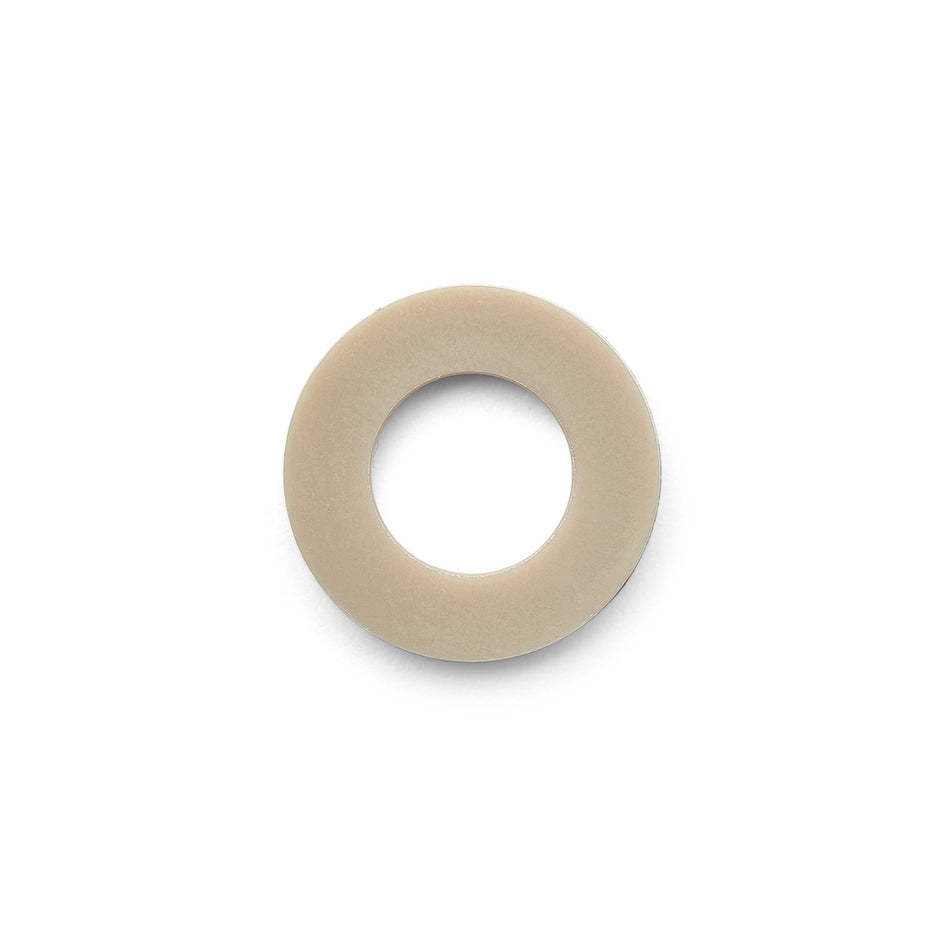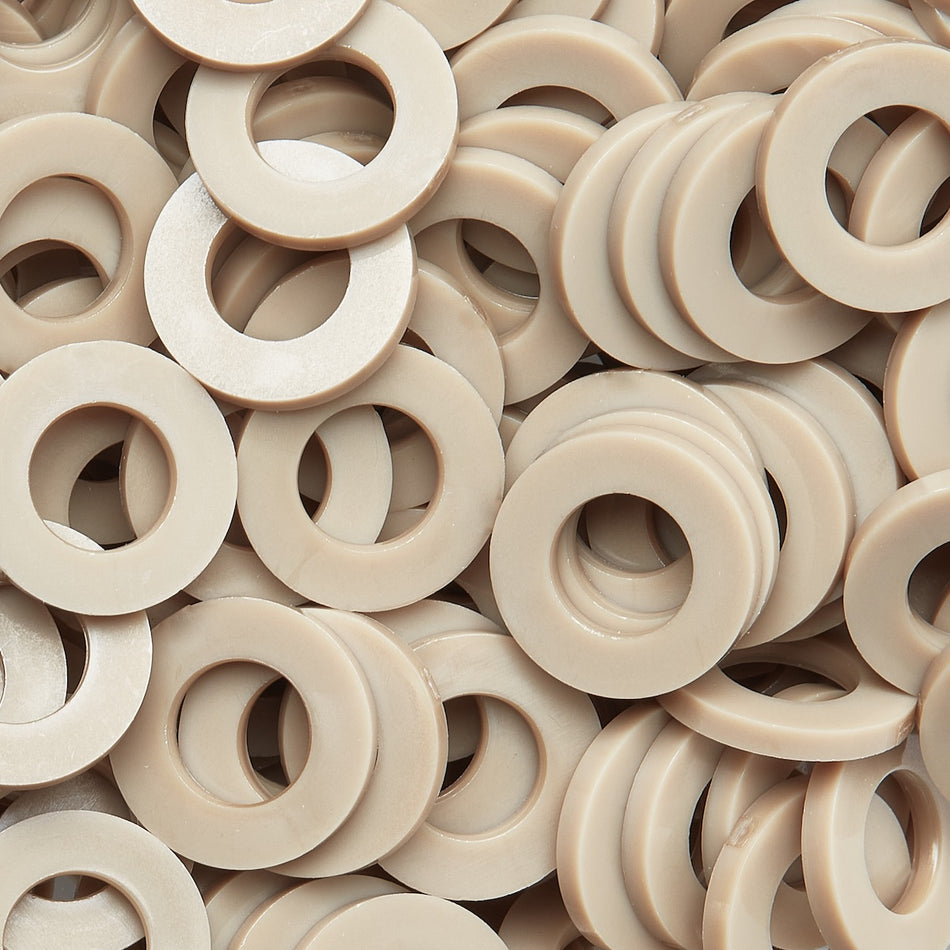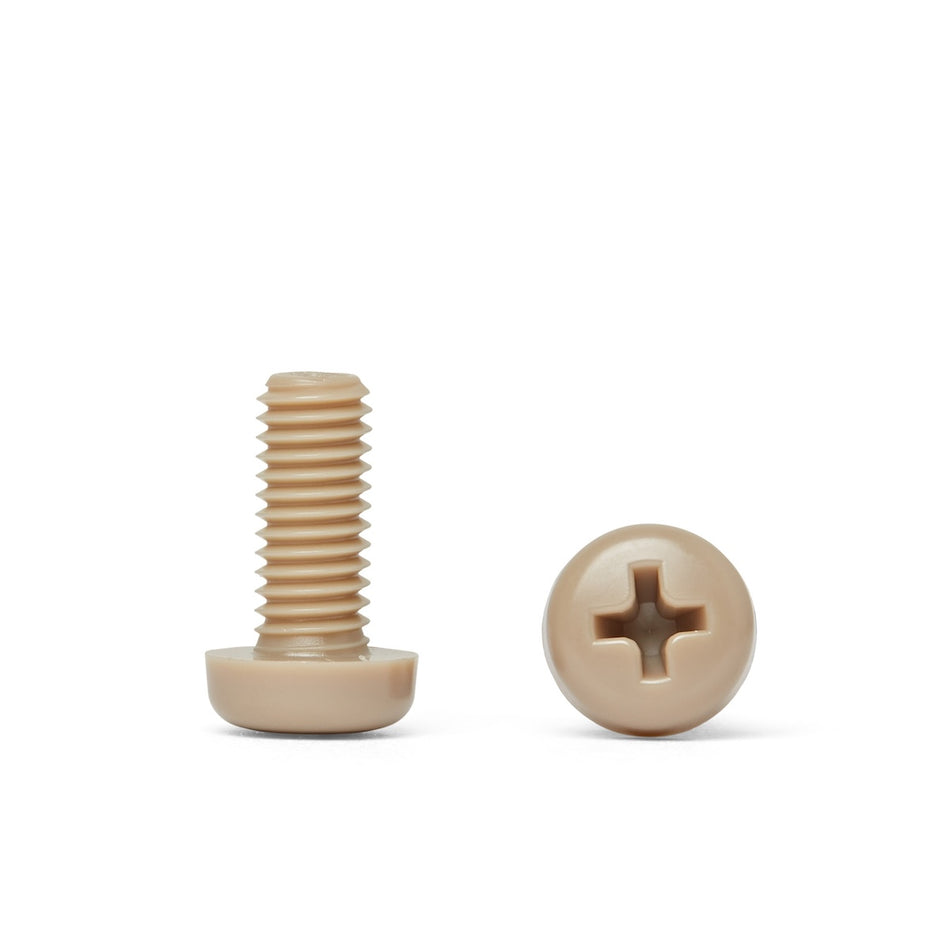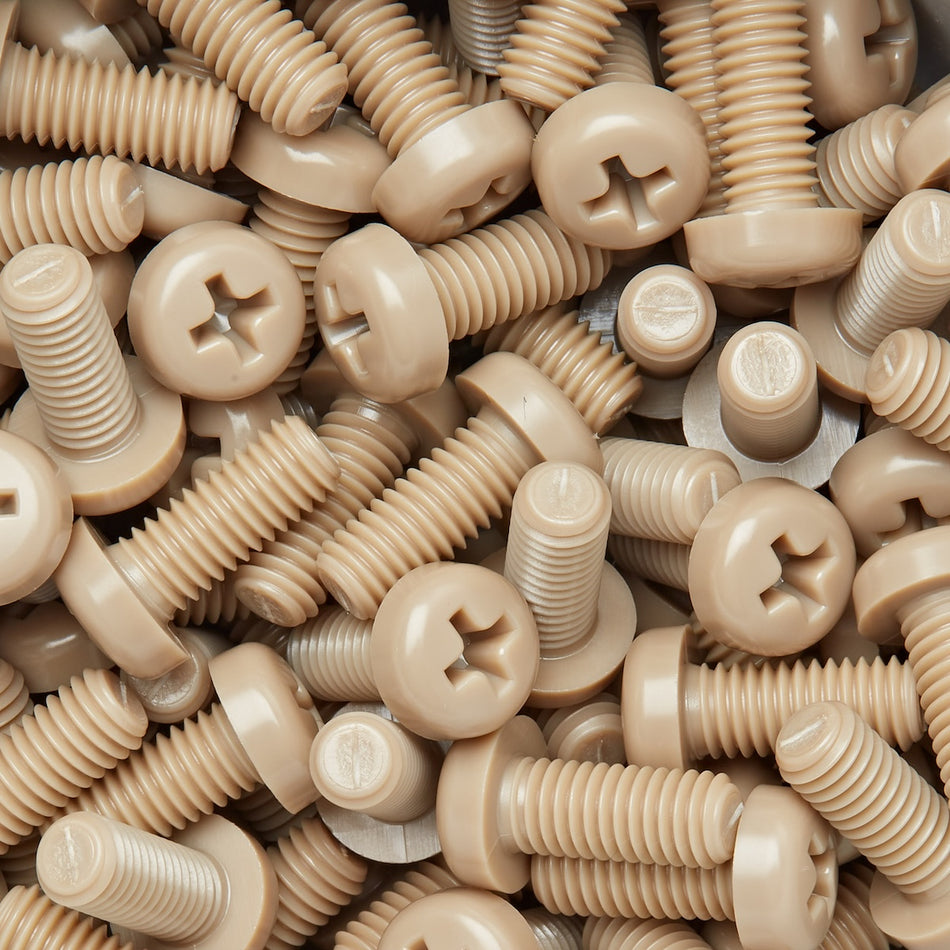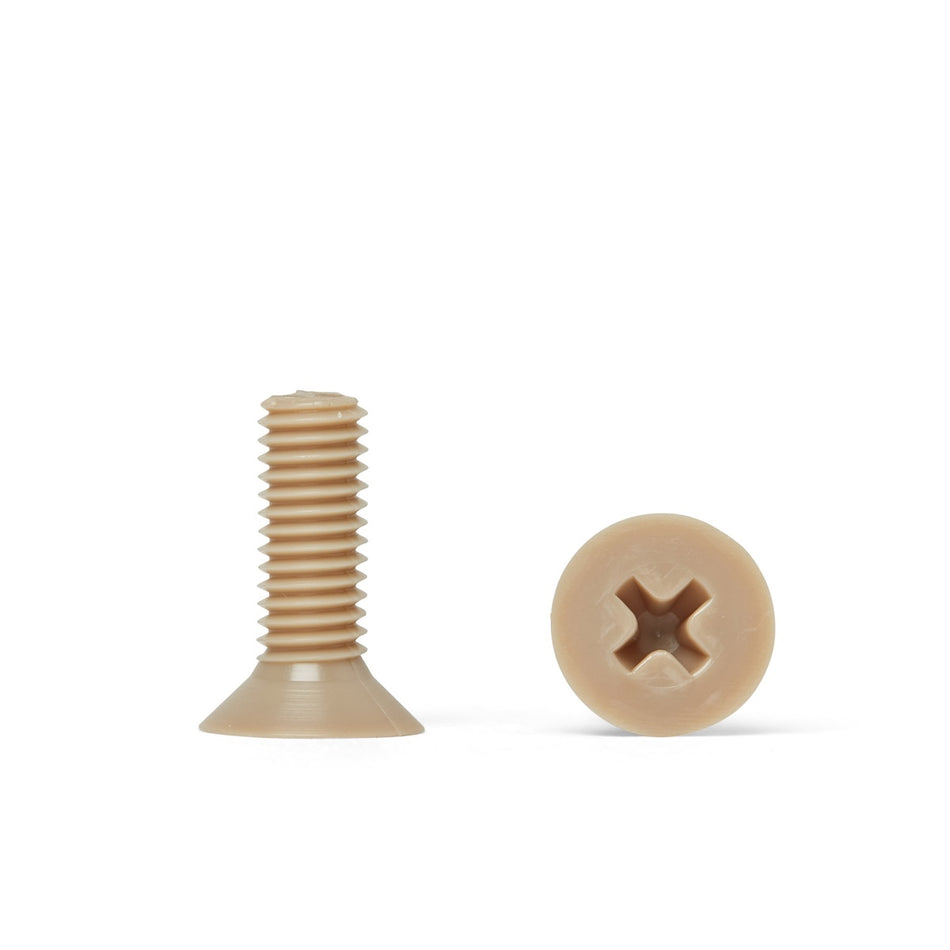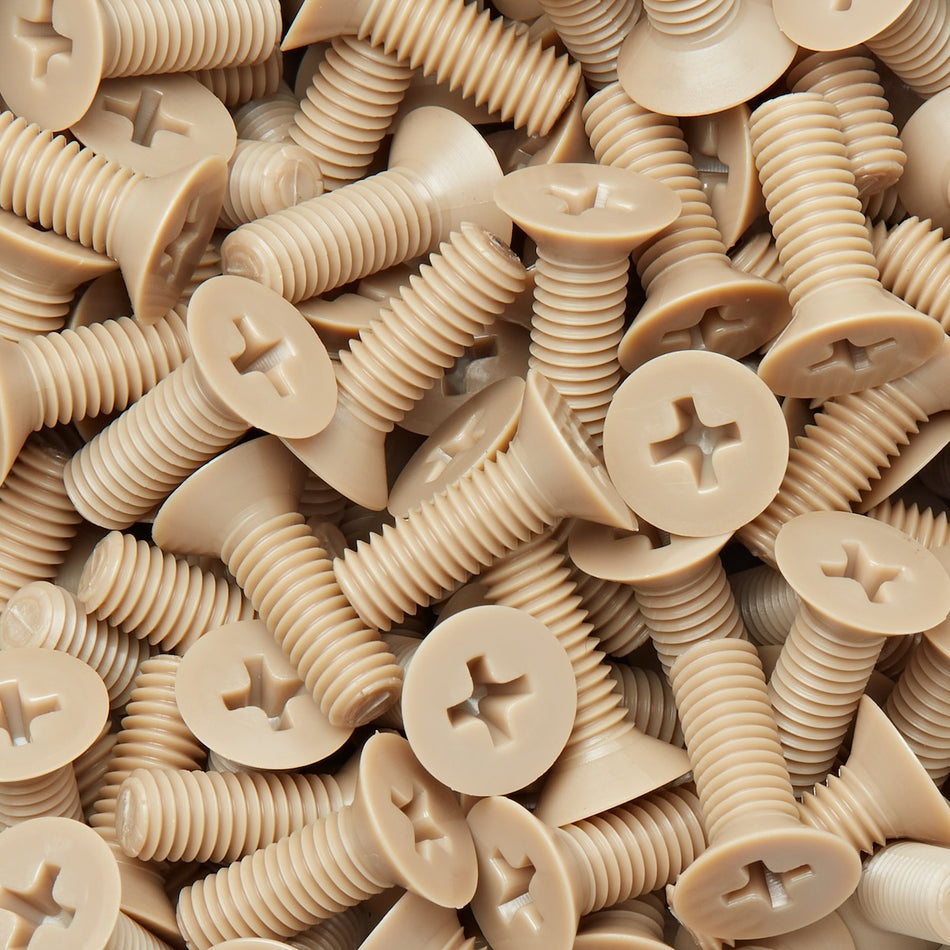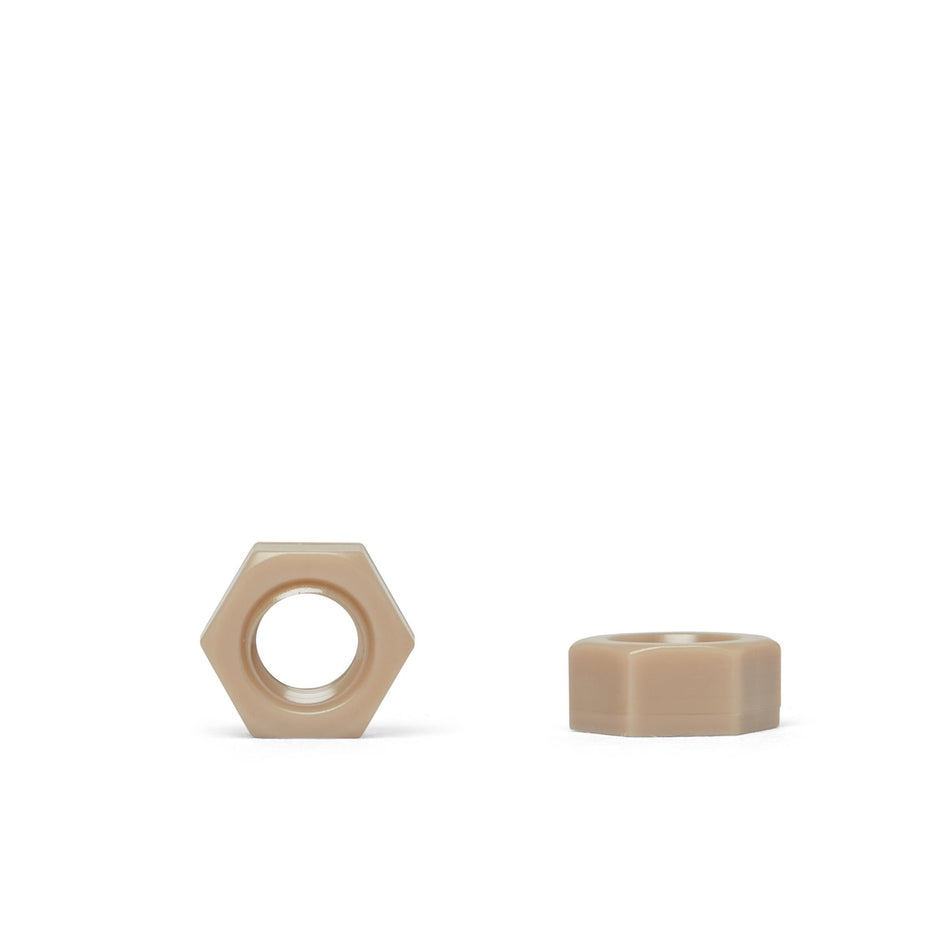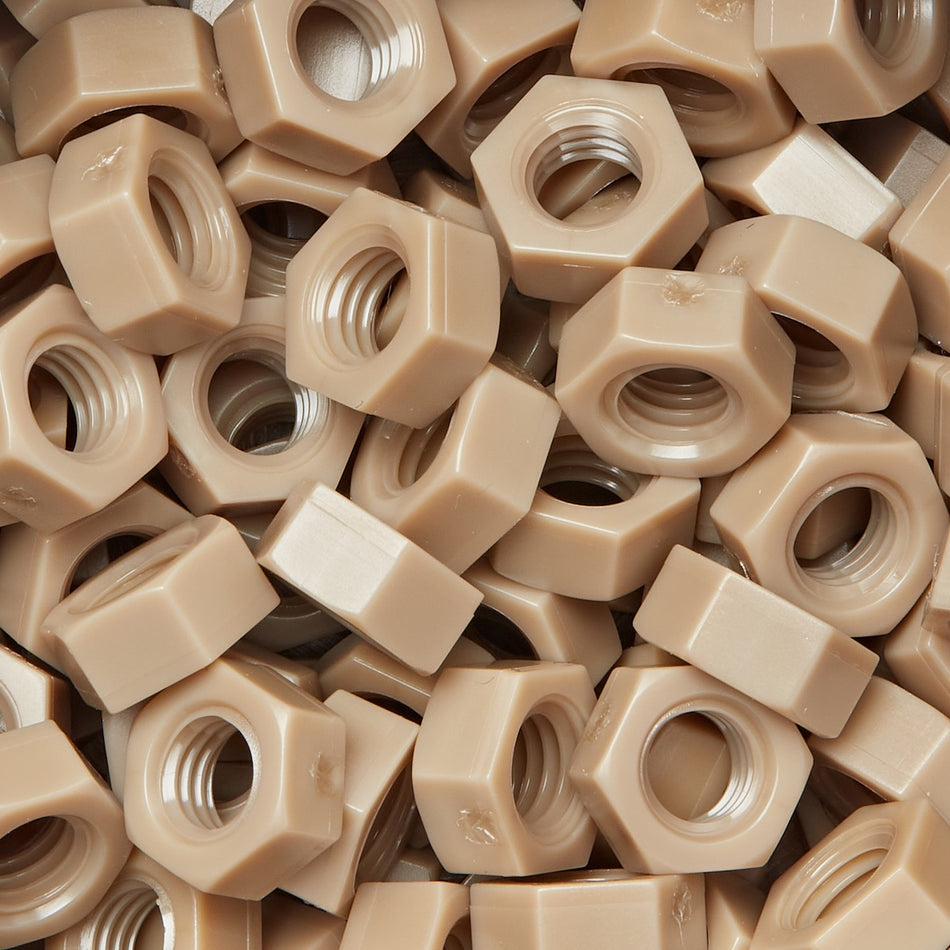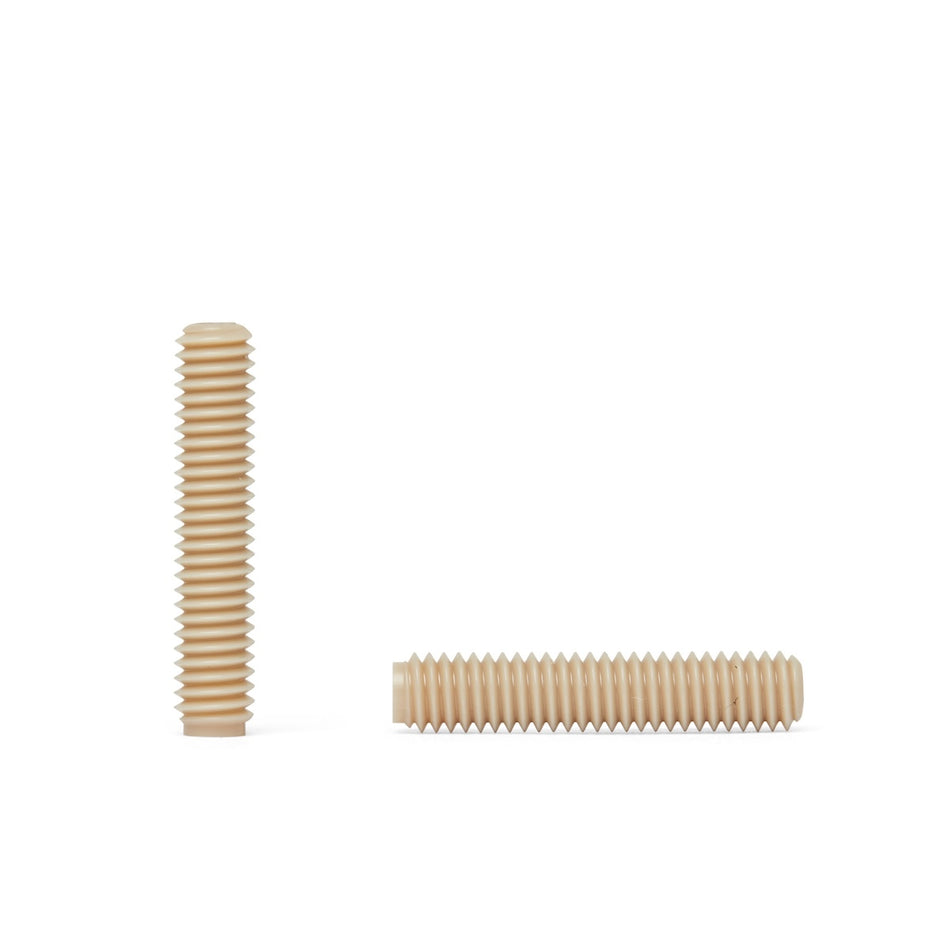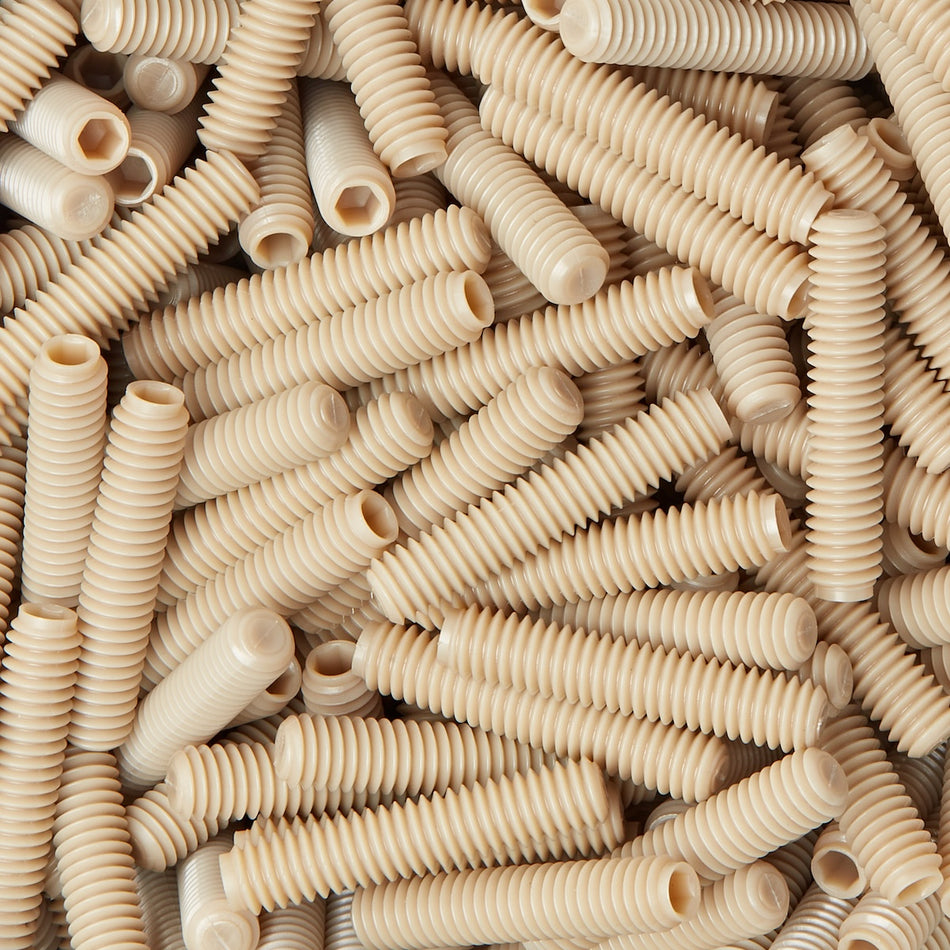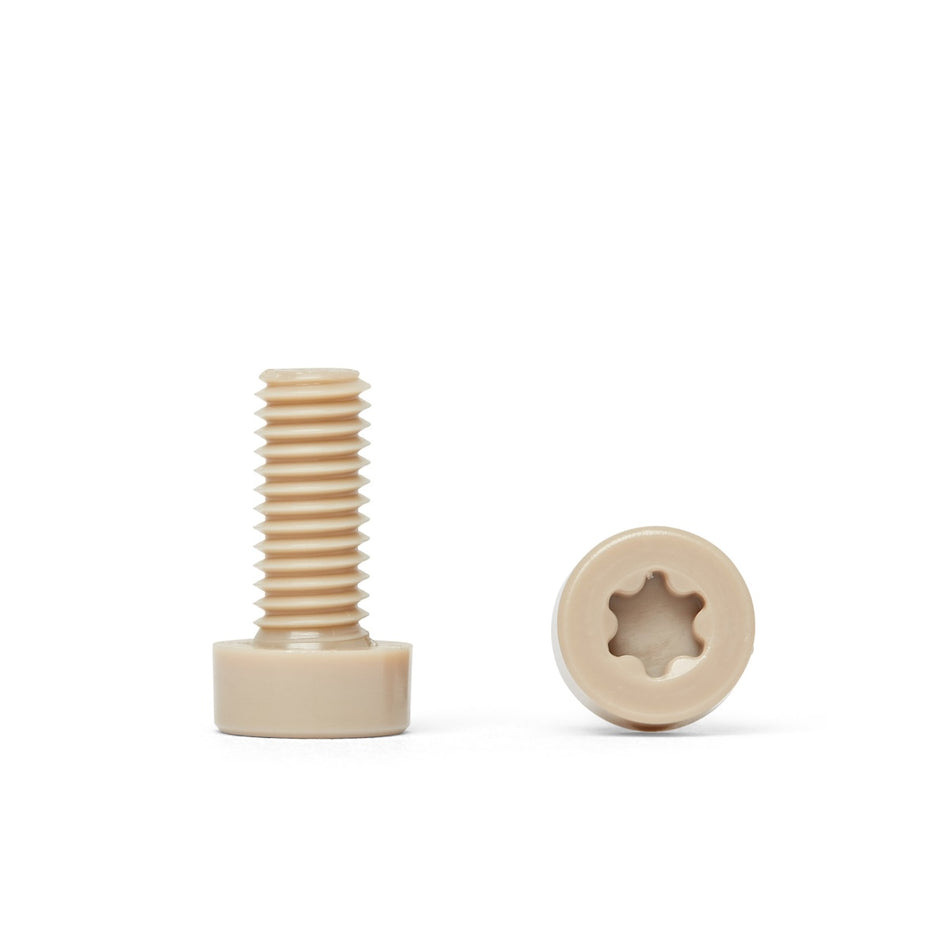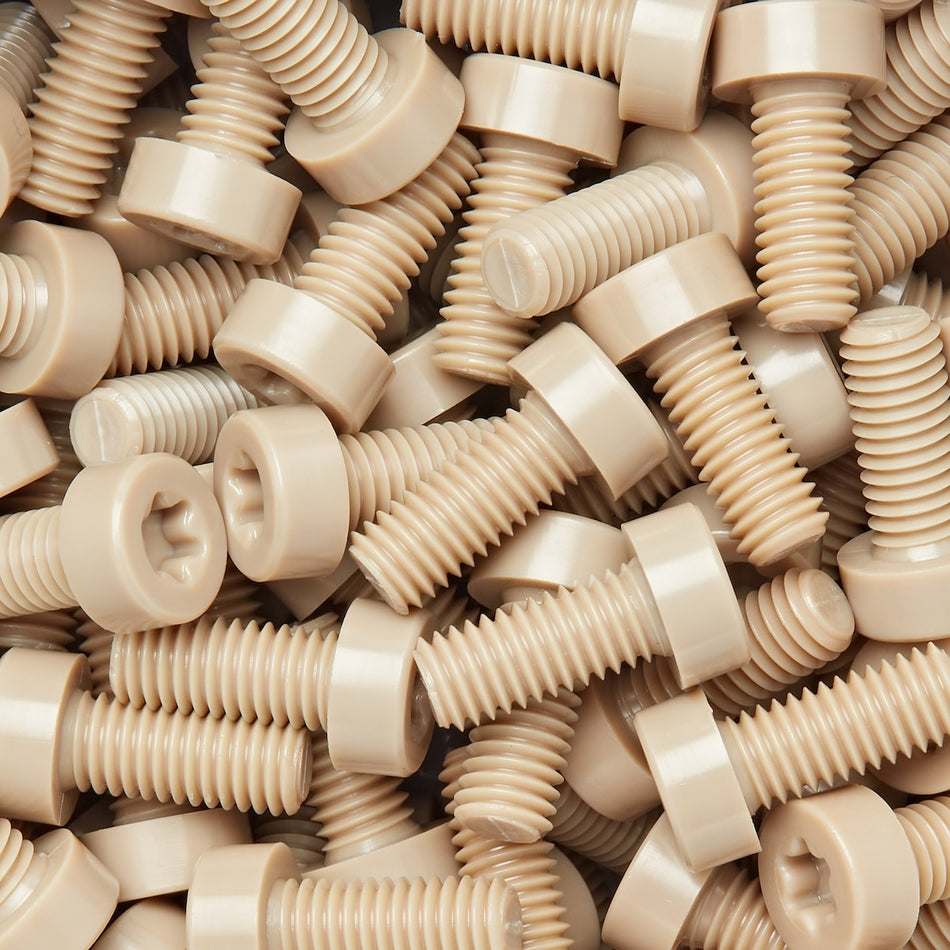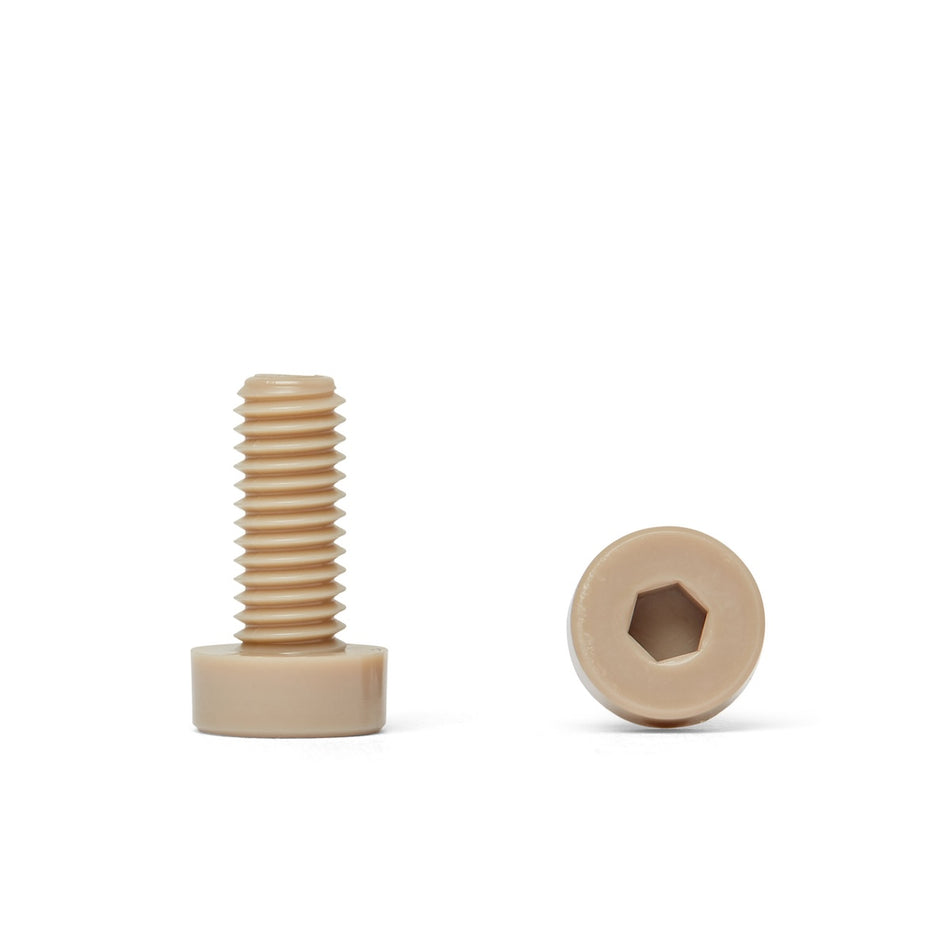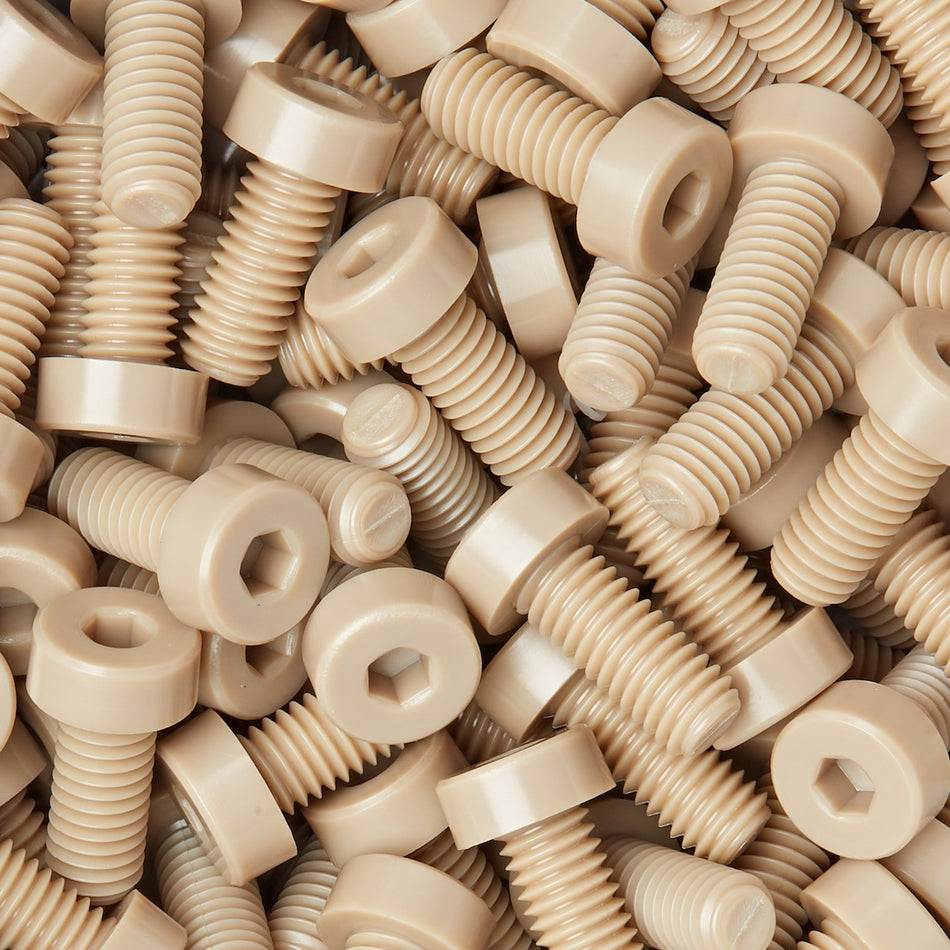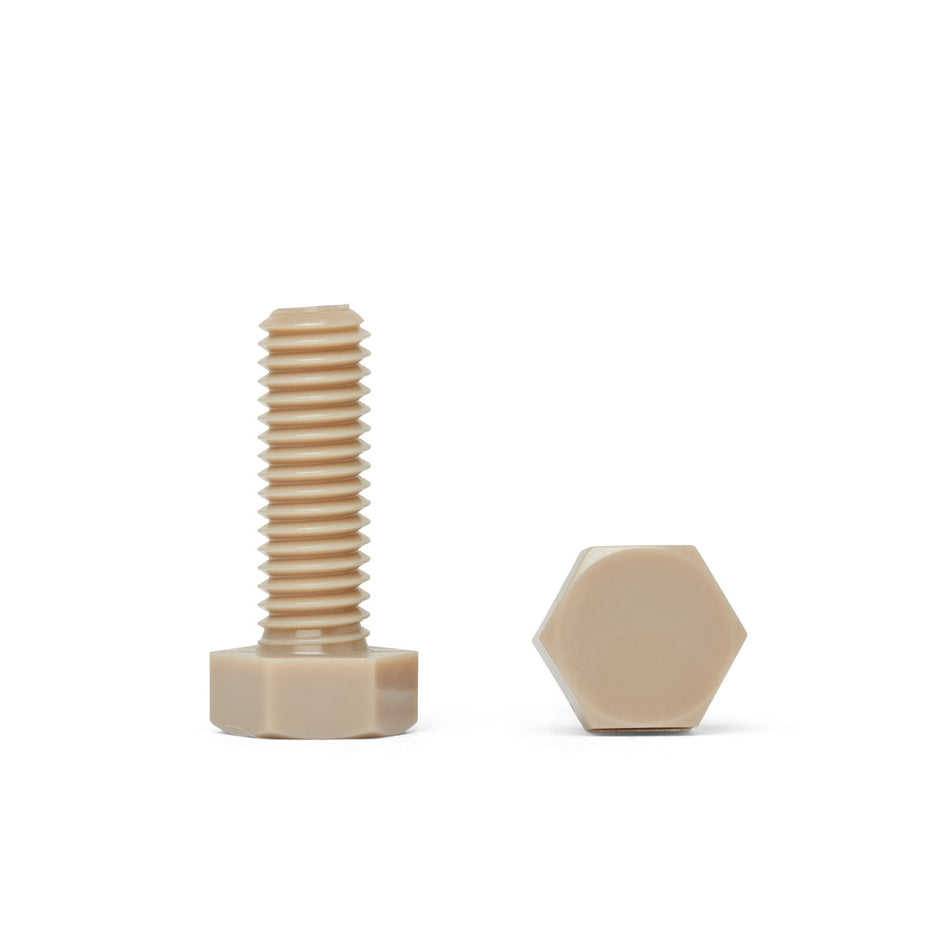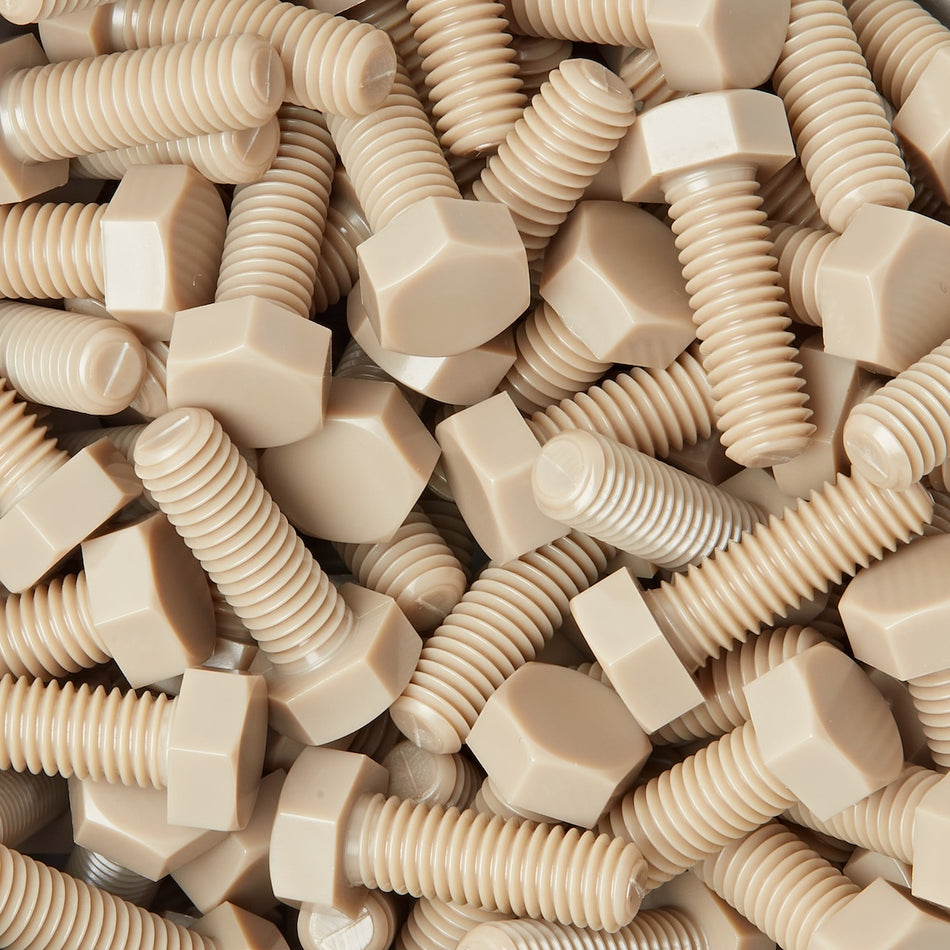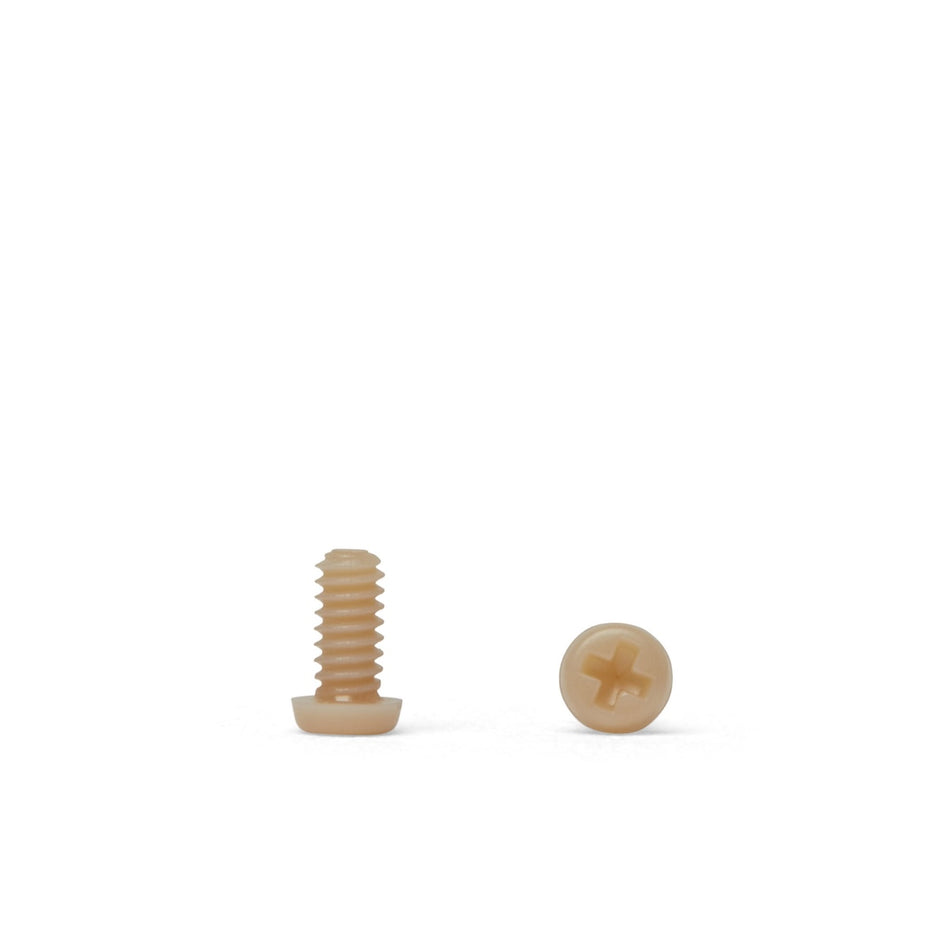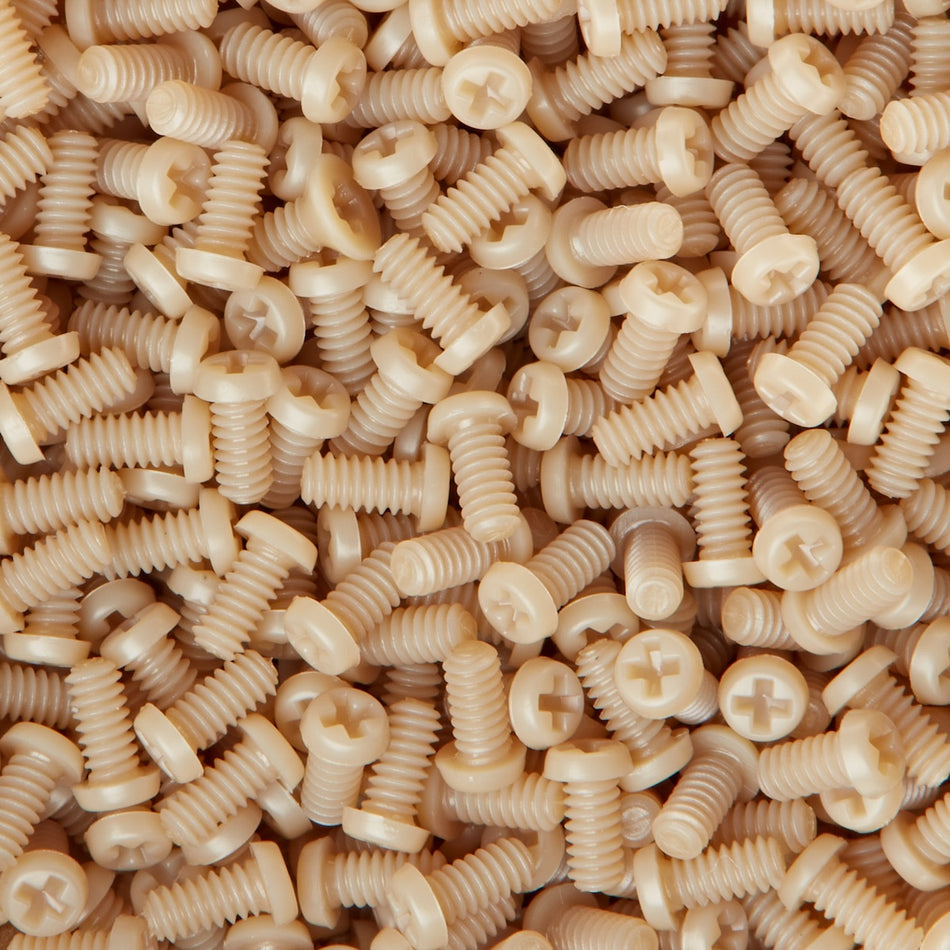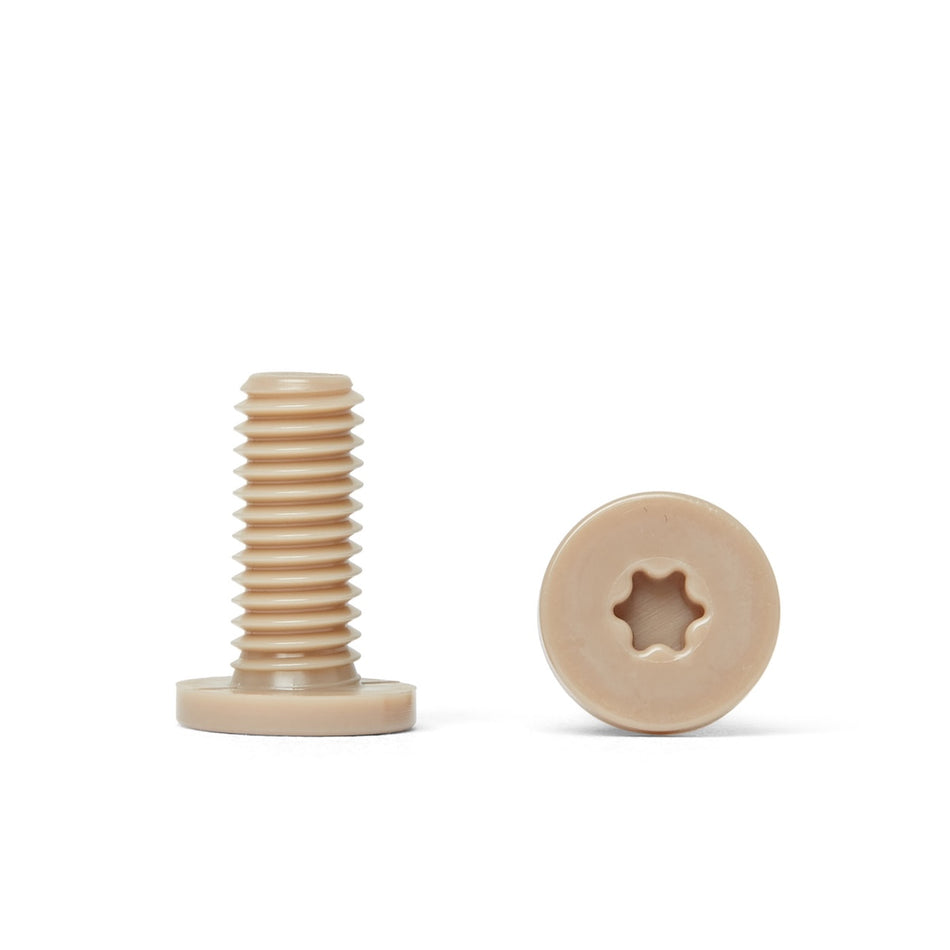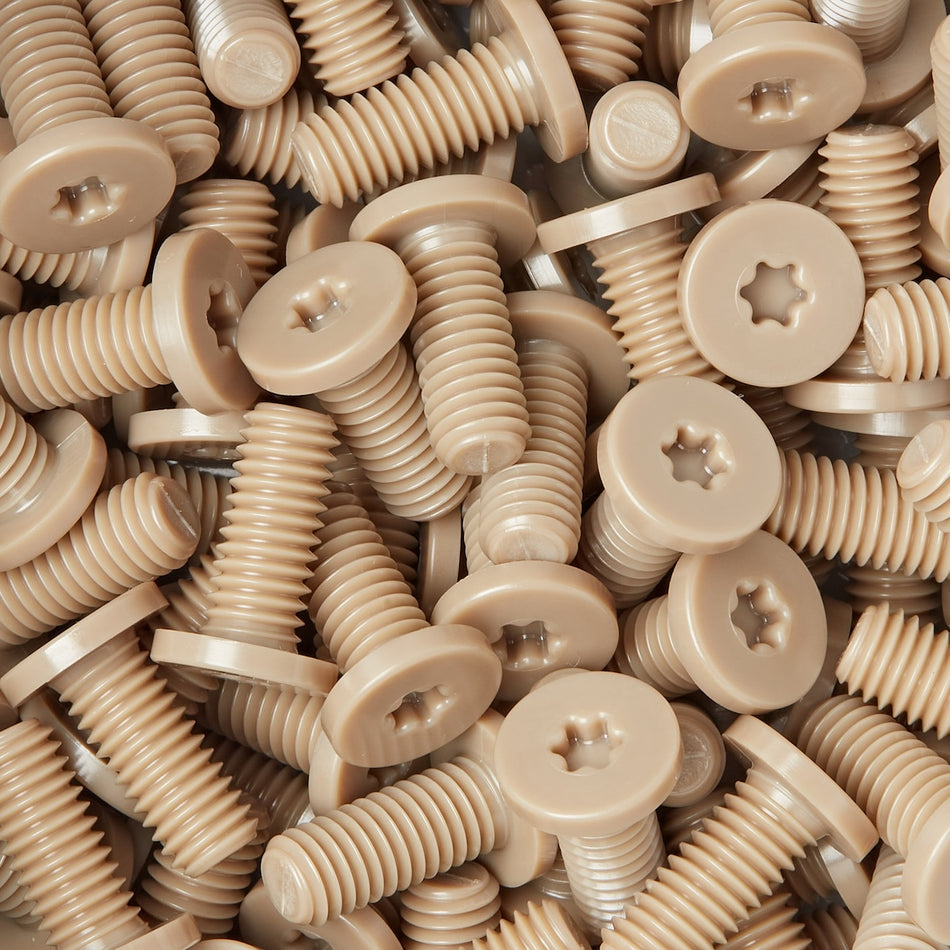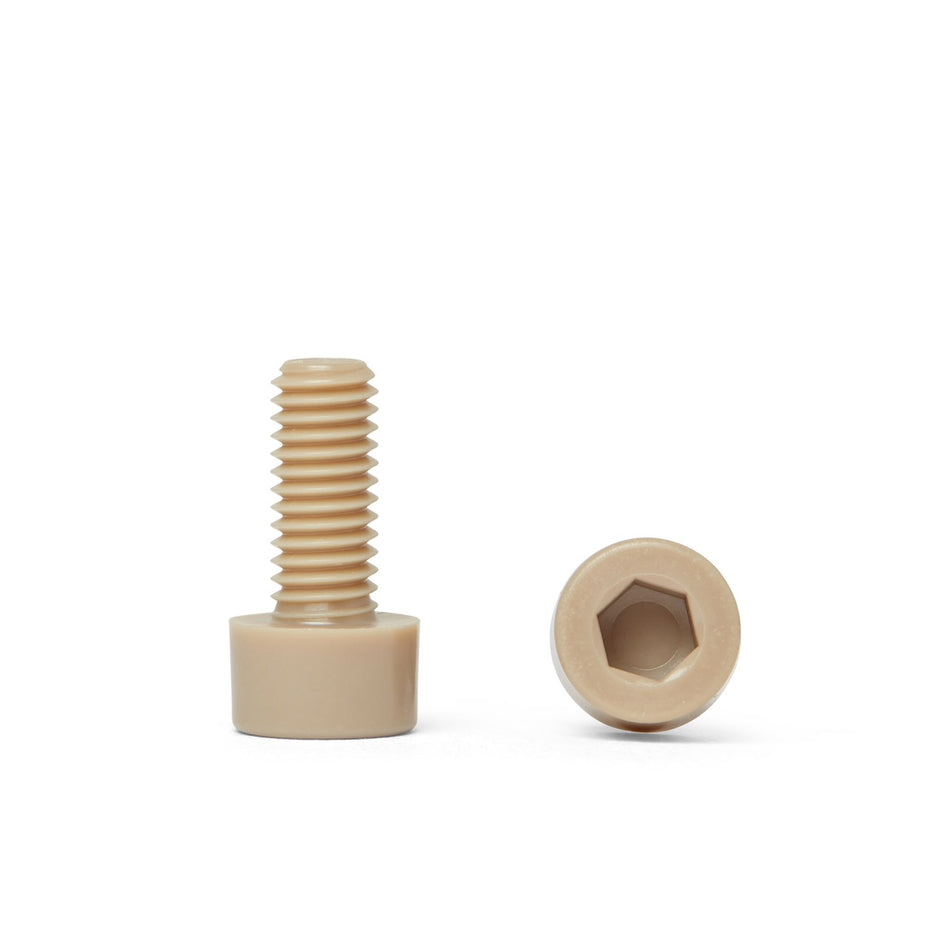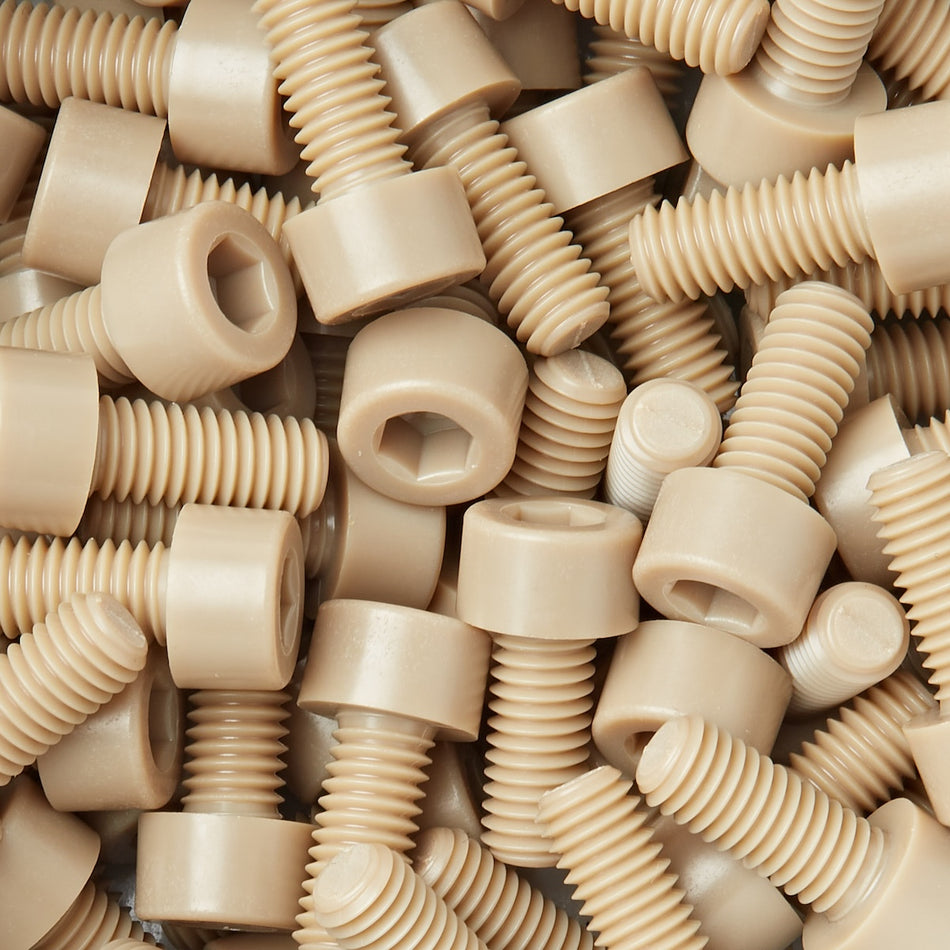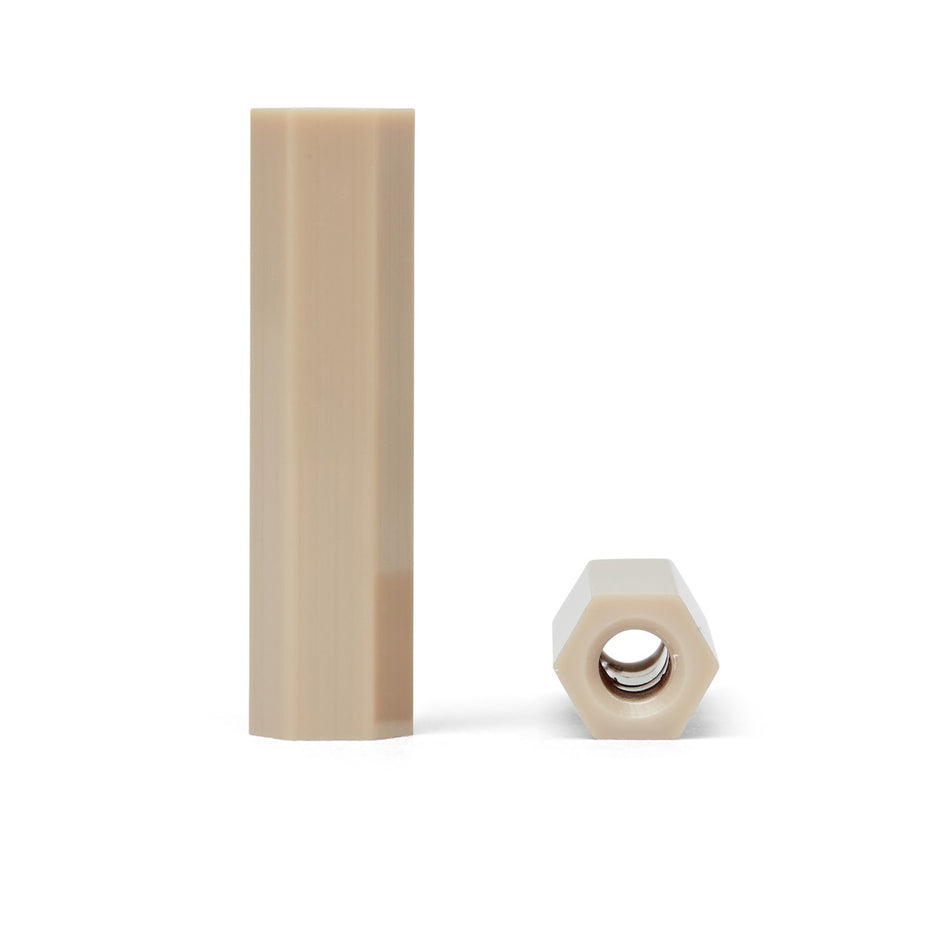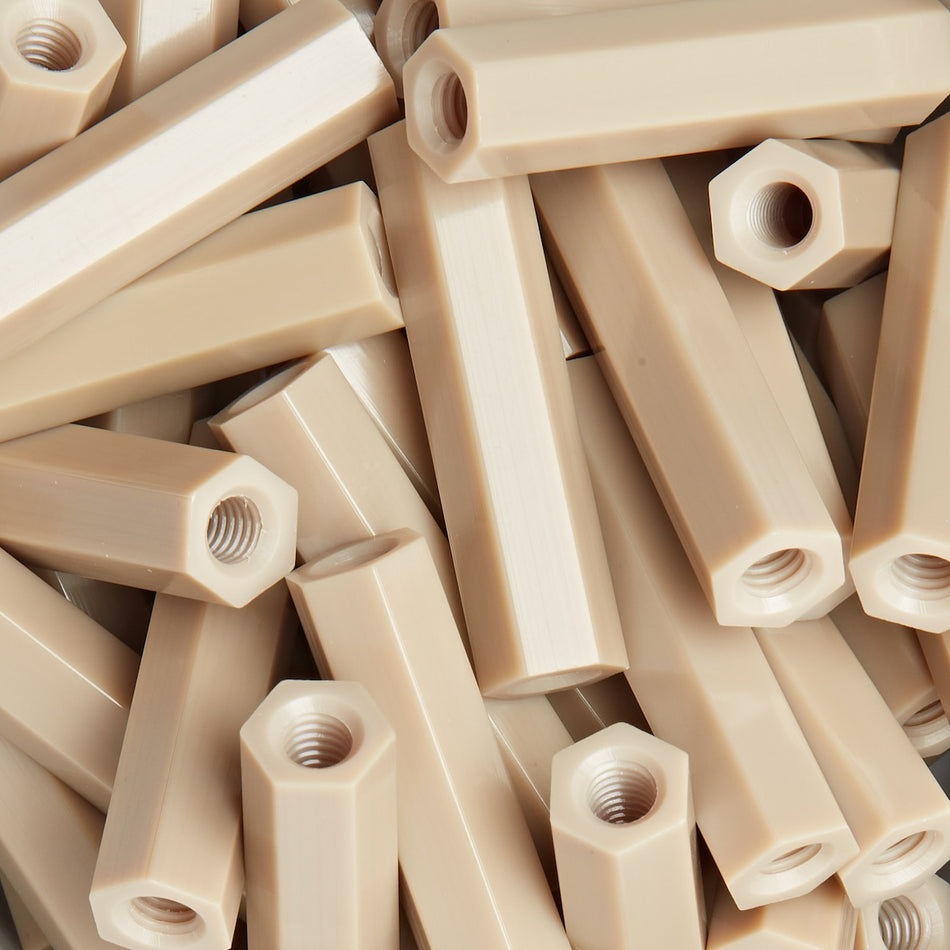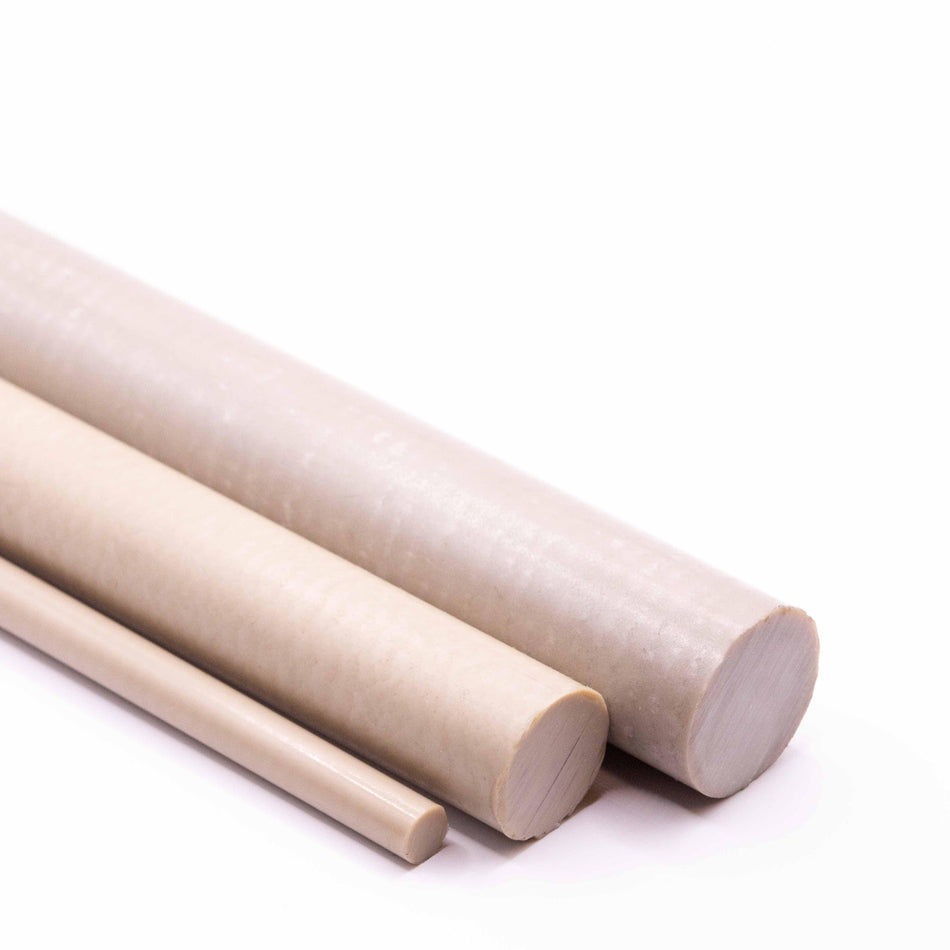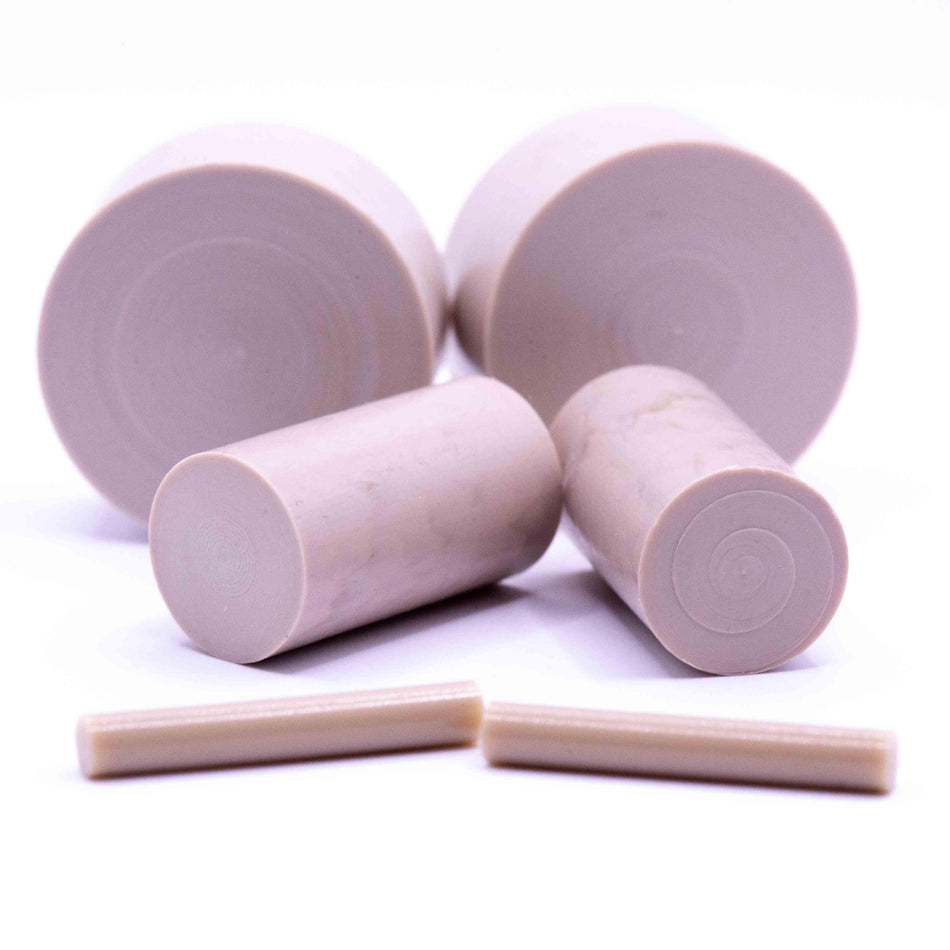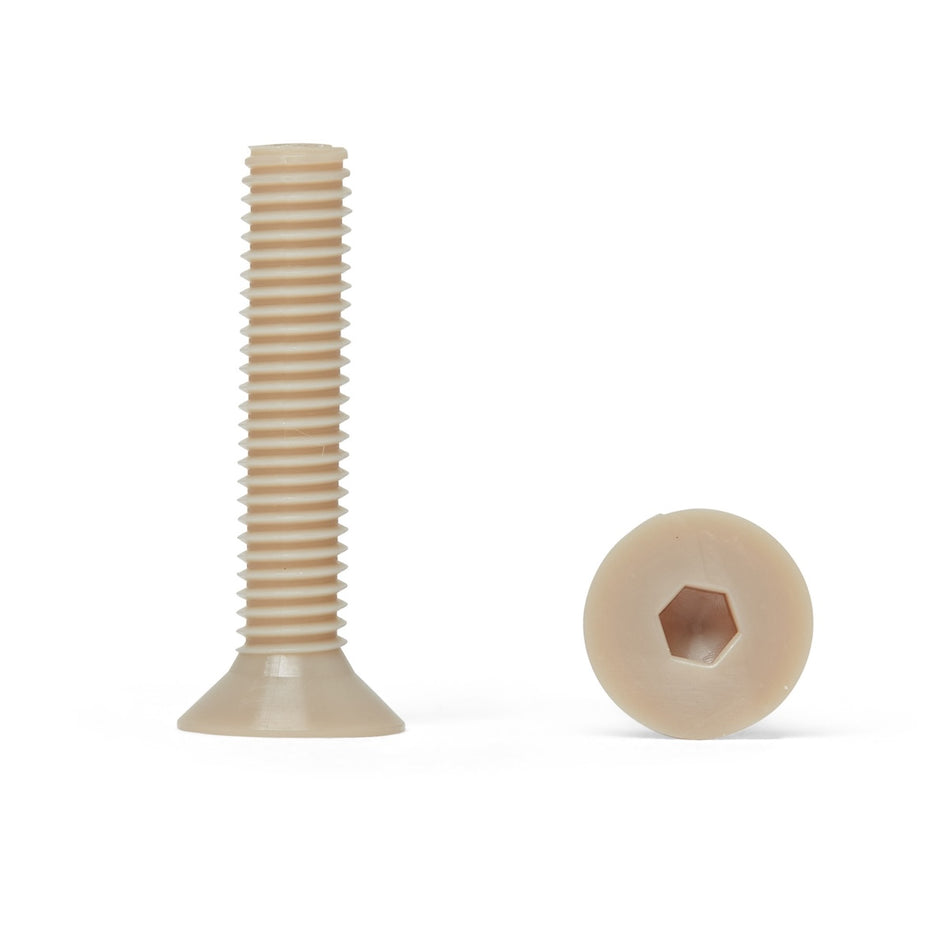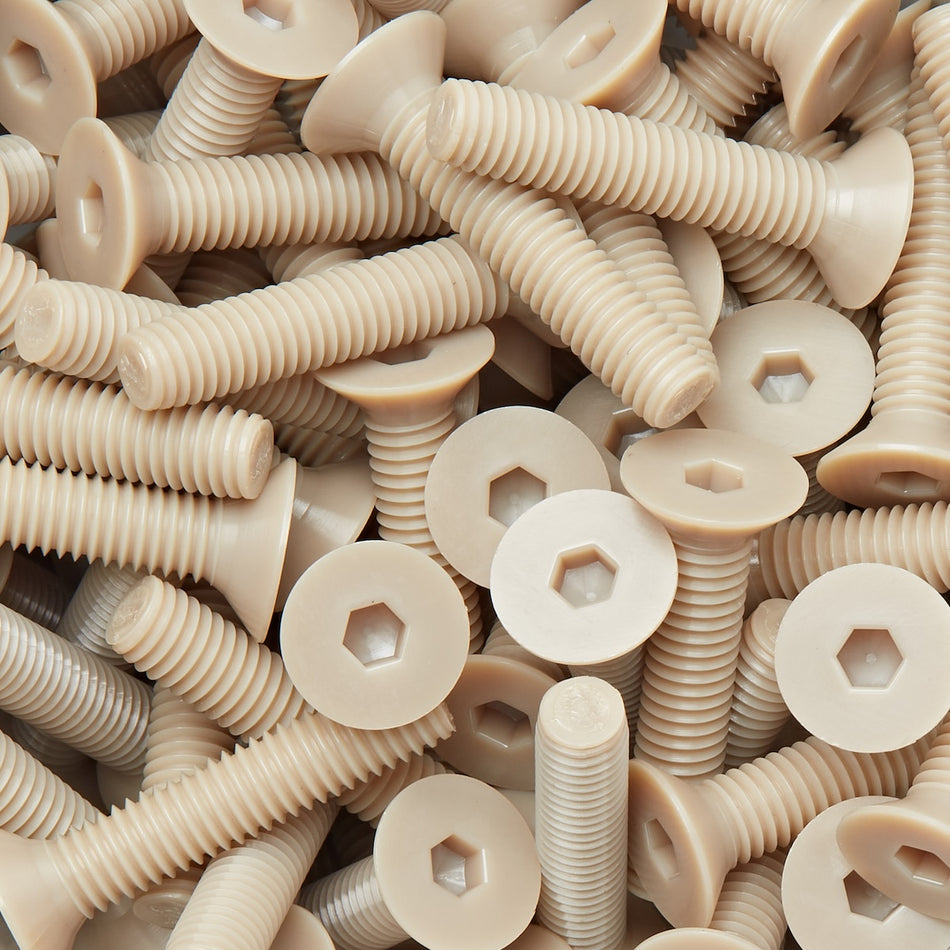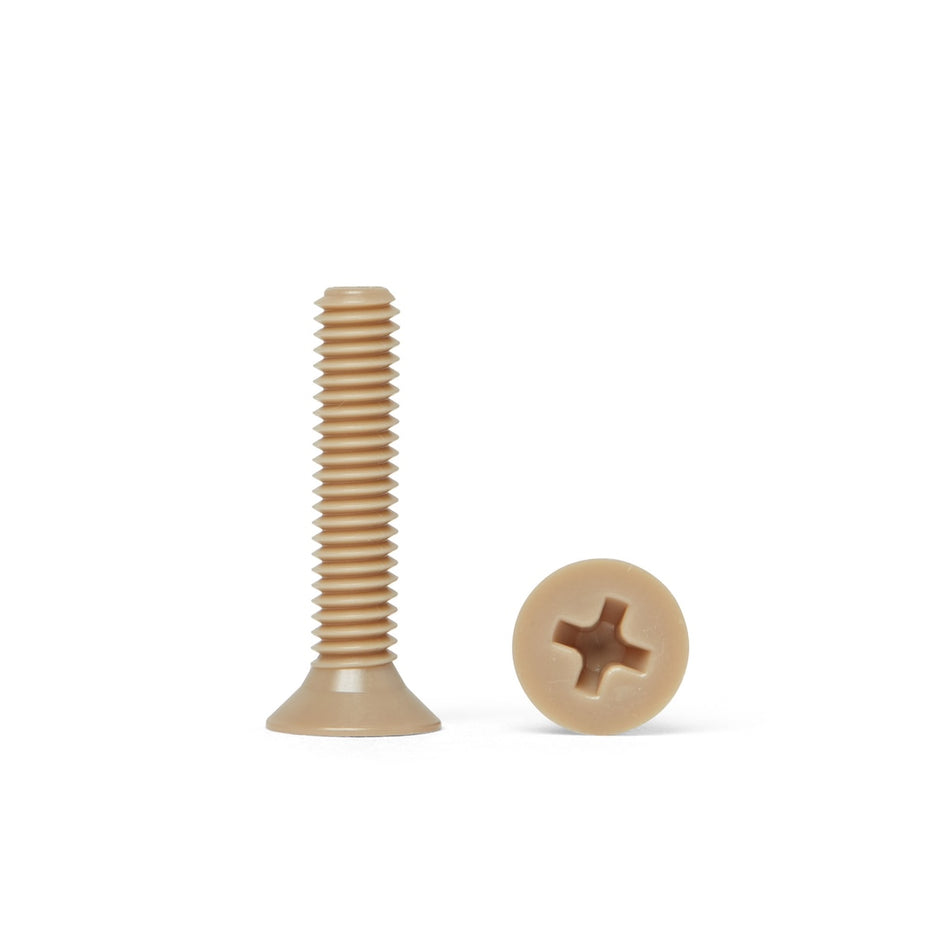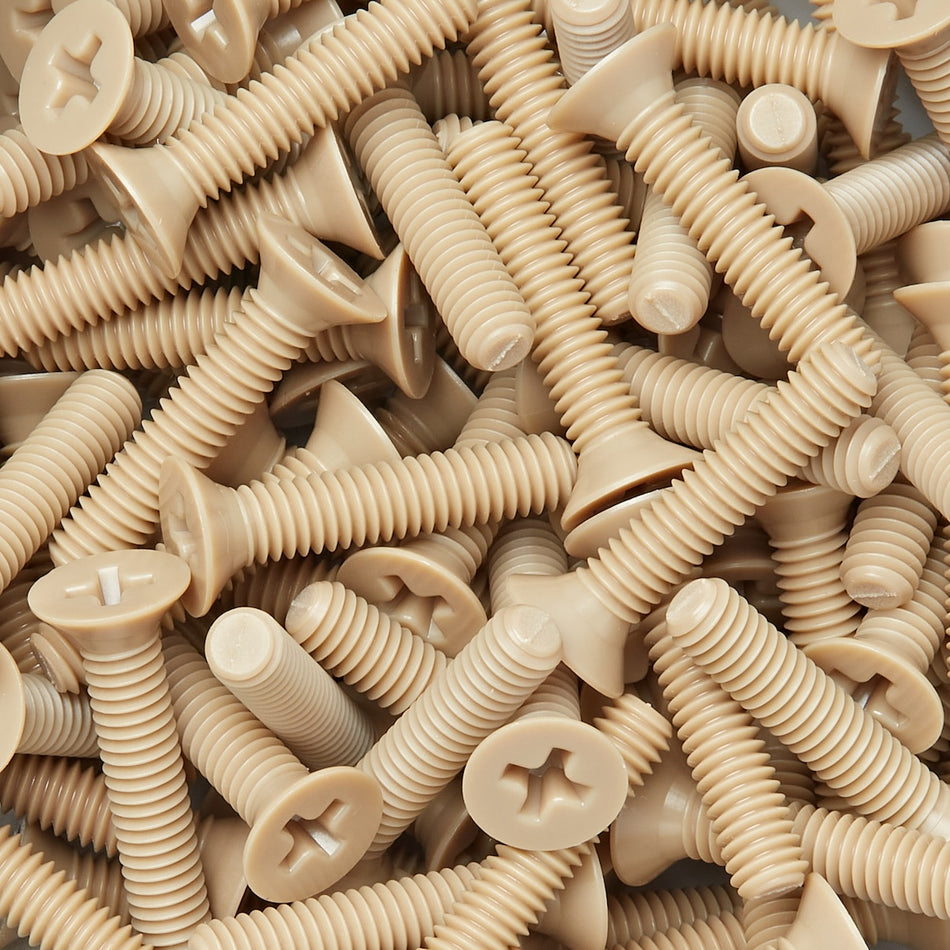83 Producten
Biologische schroeven, moeren, bouten, sluitringen en bevestigingsmiddelen
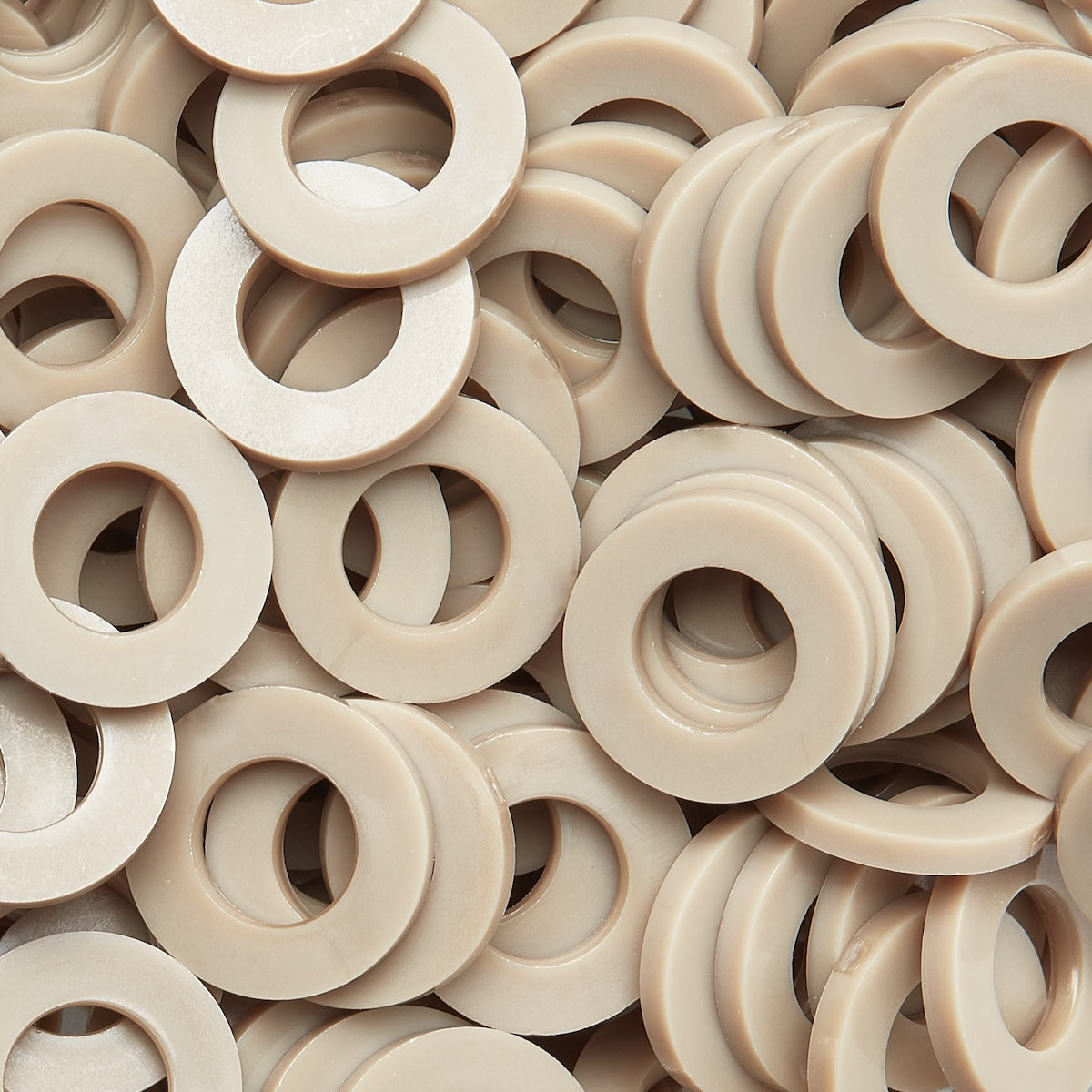
Why Are Bio-Compatible Fasteners Used?
bio-compatible screws, nuts, bolts, washers, and fasteners are an important component in many medical applications, and they are chosen for their biocompatibility, which ensures that they do not cause harm or an adverse response when in contact with living tissue.
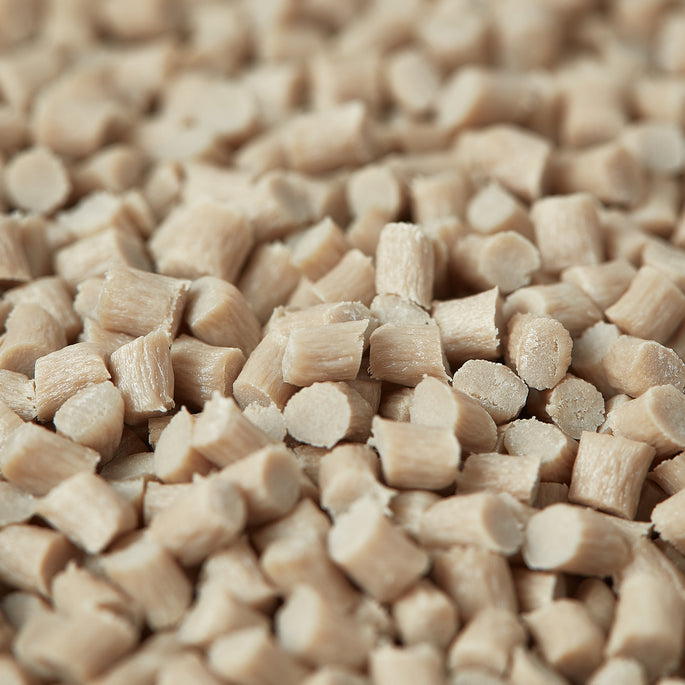
Bio-Compatible Materials
There are a variety of materials that can be used to make bio-compatible screws, nuts, bolts, washers, and fasteners, these include metals such as stainless steel, titanium, and certain types of plastic or polymer such as PEEK. These materials are chosen for their biocompatibility, which means that they are not toxic or harmful to living tissue and do not cause an adverse response when in contact with living tissue.
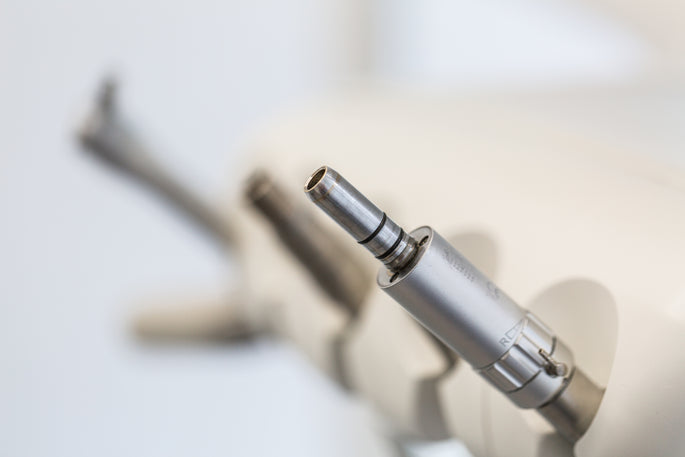
Real World Applications
Bio-compatible screws, nuts, bolts, washers, and fasteners may be used in a variety of medical applications, such as in the construction of medical devices, such as implants or prosthetics, or in the repair or reconstruction of living tissue, such as in surgery. They may also be used in the manufacture of medical equipment or in the assembly of medical devices.
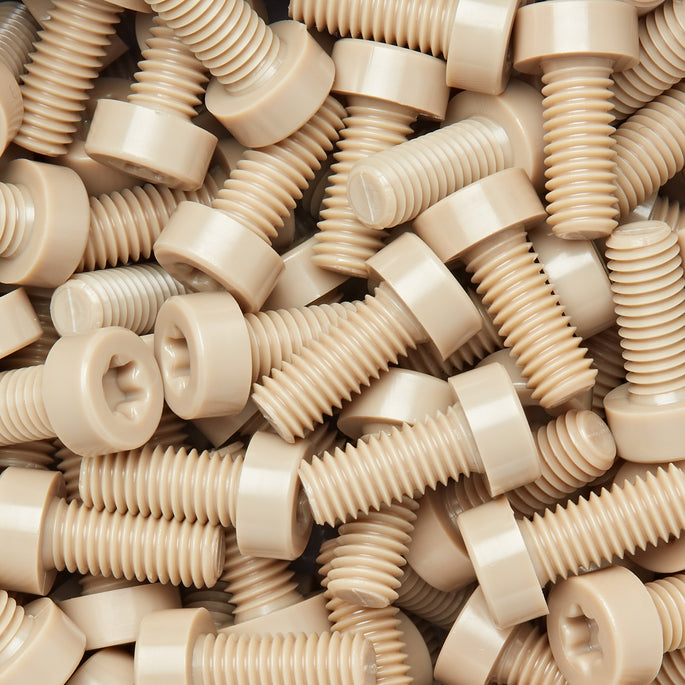
How are fasteners made bio-compatible?
Bio-compatible polymers like PEEK are made bio-compatible through careful control of their chemical composition, processing, and manufacturing methods to ensure they do not elicit adverse biological reactions. PEEK's inherent chemical stability, non-reactivity, and resistance to degradation in the body make it suitable for medical applications. During production, impurities and additives that could cause toxicity are eliminated. Additionally, PEEK undergoes rigorous testing for cytotoxicity, hemocompatibility, and tissue compatibility to meet stringent medical and regulatory standards, ensuring it can be safely used in implants, surgical instruments, and other medical devices.
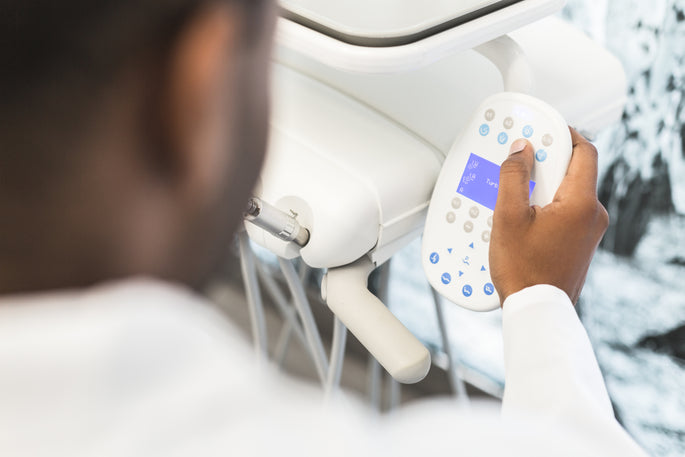
What are the benefits of bio-compatibility?
Bio-compatible polymers like PEEK offer numerous benefits in medical and healthcare applications due to their exceptional combination of strength, durability, and chemical stability. PEEK's high mechanical performance allows it to replace metals in implants, offering a lighter and more flexible alternative while maintaining structural integrity. Its resistance to degradation in the body, combined with its non-reactive and non-toxic properties, ensures long-term compatibility with human tissues. Additionally, PEEK is highly resistant to wear, sterilisation, and chemicals, making it ideal for use in medical devices, implants, and surgical instruments, while reducing the risk of infection or rejection.
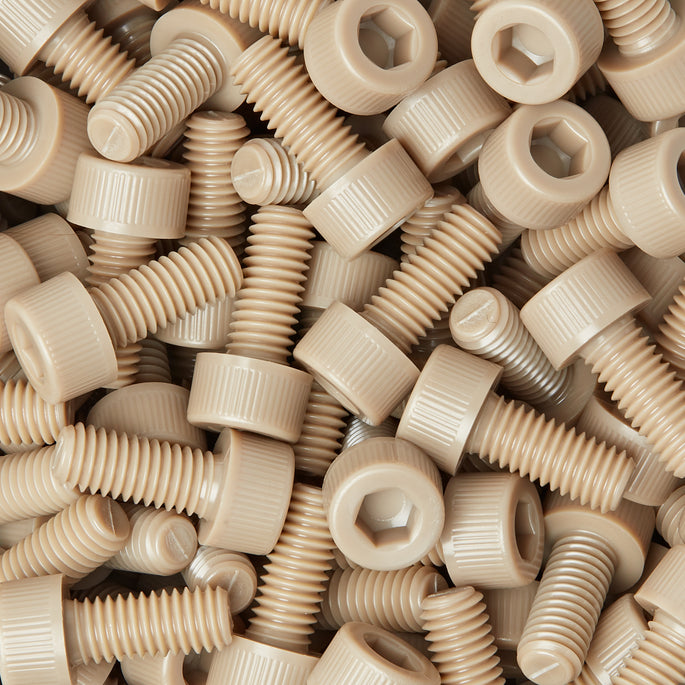
Additional Compelling Properties
In addition to biocompatibility, PEEK encompasses several other properties that make it highly suited for medical applications. Its high strength-to-weight ratio allows it to replace metals in implants and medical devices while maintaining durability and flexibility. PEEK offers excellent chemical resistance, ensuring it remains stable when exposed to bodily fluids, sterilization processes, and harsh cleaning agents. Its wear and abrasion resistance makes it ideal for long-term implants, such as joint replacements, where it experiences constant movement. PEEK also has radiolucency, meaning it does not interfere with imaging techniques like X-rays or MRIs, allowing clear post-operative monitoring. Additionally, its thermal stability enables it to withstand high temperatures during sterilization without degrading, ensuring its safety and performance in medical environments.

